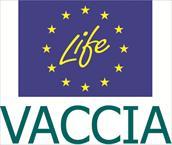
The aim of this action is to model critical change thresholds for local ecosystems and communities due to combined effects of growing tourism industry and impacts of climate change. Increasing precipitation, shorter and warmer winters and substantial decreases in snow and ice cover will change dramatically the operational preconditions of nature-based and winter tourism in Northern Finland. Vulnerability assessment is based on a model produced by using structured and combined ecological, social and health impact assessment framework. The assessment report will focus on the risks for tourism, especially nature-based tourism, and related communities from the predicted global and climate change factors (e.g. ecosystem and local climate changes influencing on attractiveness of a tourist destination and transmission of new species and diseases) and the suitable adaptation measures found through collaborative planning with local actors and interest groups. The action will focus in areas of Kainuu and Kuusamo (northern Finland), key areas for winter and nature-based tourism.
The assessment framework is based on local sustainable development within the global-local nexus. The assessment will show impacts on tourism and effects on local communities and how they will manage to adapt to change that will have a major effect to all kinds of tourism activities but especially the ones that are based on the direct use of natural environment and resources. Data in registers can be used to identify risk groups in the population, especially concerning adverse health events. This data can be used to help stakeholders to match resources in health management in sparsely populated area. When combining the assessment data and approaches together we can say how the changes of people’s behaviour impact on natural systems and how the changes of natural systems impact on people’s health and communities’ well being. We will model these impact processes and local solutions made for climate change adaptation.
Methods employed
Environmental impact assessment, collaborative planning. Integrated impact assessment gathers the relevant data on (1) the current tourism industry, (2) its regional and local socio-economic significance, and (3) environmental impacts of current and predicted tourism use along with (4) predicted climate changes at the local level. Based on this data the assessment group makes two or three base-line scenarios of socio-economic (including health aspect) and environmental changes on tourism industry and related communities (focusing on risks in the selected areas) due to climate change to be introduced to local actors and stakeholders in Future Workshops.
Future Workshop is a socio-pedagogic method for identification of common problems, development of a vision, ideas and action plan among a group of people concerned. It helps to develop a complete ‘problem catalogue’ related to the selected ‘theme’ of the workshop. In these workshops scenarios are developed further and the discussion of adaptation measures is started and the most suitable measures are sketched. Focus group interviews are used for searching and evaluating various adaptation measures needed for different time period (5, 15 and 30 years) and building up commitment to these measures. The key element in this impact assessment process is locally affected groups’ participation in formulating adaptation strategies and action plans.
Expected results
- Integrated vulnerability assessment model (critical change thresholds for local ecosystems and communities).
- Innovative approach and group (new interdisciplinary expertise) which can be used in other tourist destinations.
- Increased awareness of climate change impacts on nature-based and winter tourism and tourism related communities and determinants of health in chancing physical and socio-economic conditions.
- A short and concrete policy report on the key results and recommended adaptation measures.
- Future Workshops
Contact person
Hannu I Heikkinen, University of Oulu, hannu.i.heikkinen(at)oulu.fi